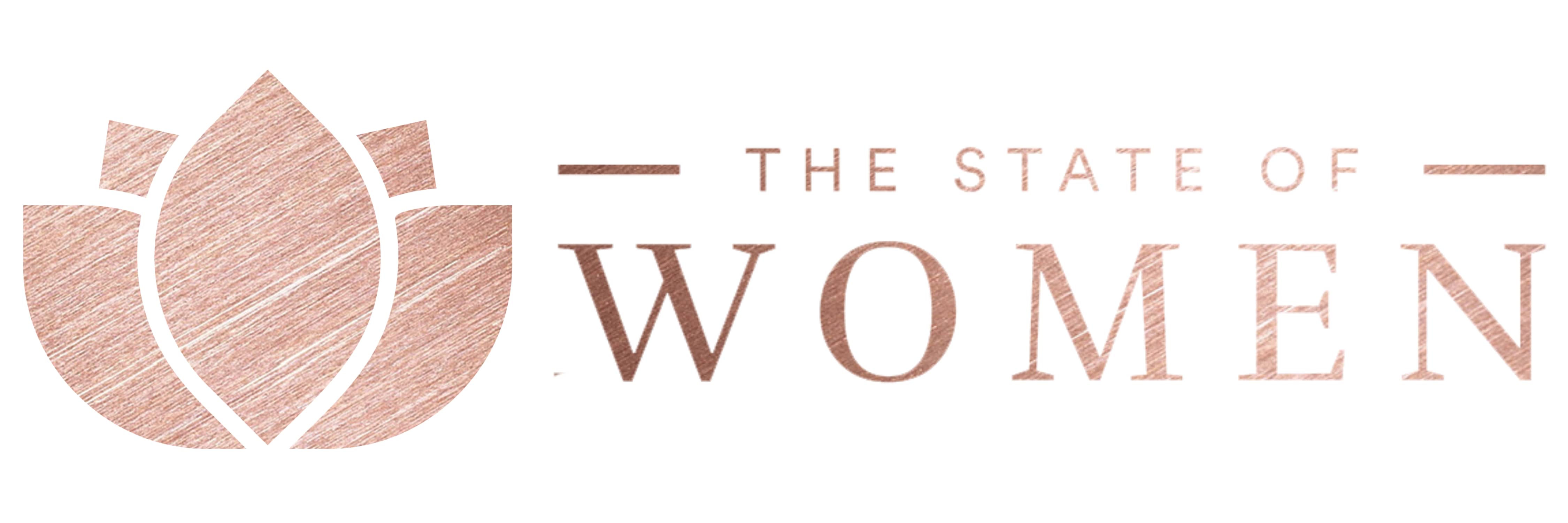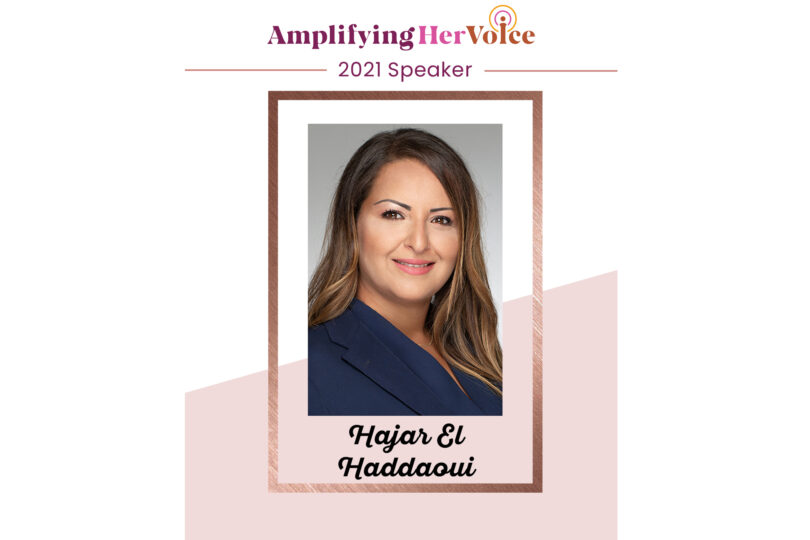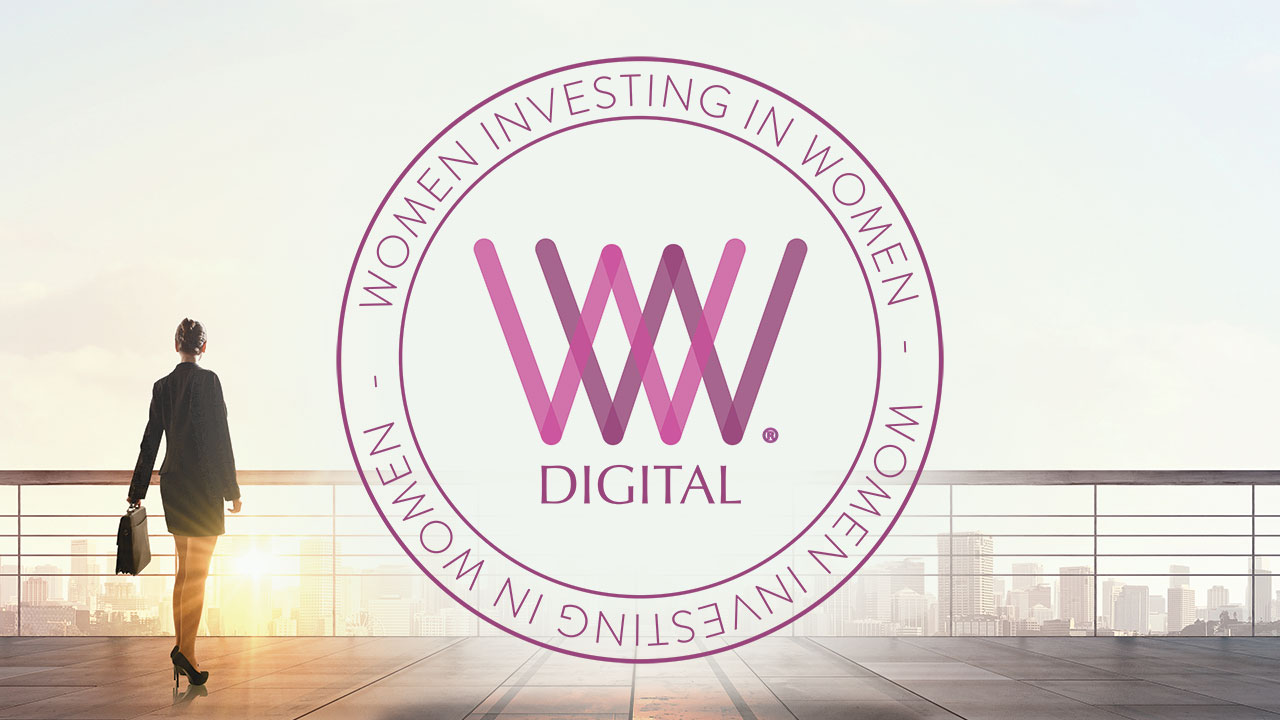Our Amplifying Her Voice “In Moms We Trust” summit wrapped earlier this month, but the women—and leaders in their industries—who spoke have wisdom about motherhood, equality, empowerment, and more that we still need to share with you. Today, meet Hajar El Haddaoui; a business leader, adviser in digital transformation and leadership, and public speaker—as well as the mother of a 10-year-old girl—who spoke as part of our panel on balance, the second time she’s lent her expert voice to our global summits. She is the head of Region West and Tessin at Swisscom, on the advisory board of MOD-ELLE, on the assembly of delegates for the Vaud Chamber of Commerce, and on the Global Campaign board of Cherie Blair Foundation for Women. El Haddaoui was a finalist in the Women IT Awards 2020, and focuses her expertise on bridging the gap between practice and theory in digital transformation and leadership.
Here, she discusses the unique and magnified challenges faced by mothers in the workplace, her economic advocacy for women, current research (and research that still needs to be done) in areas like economic and gender inequality, the crucial role of women role models, and much more.
What inspired you to join Amplifying Her Voice for Mother’s Day?
I am inspired to join Amplifying Her Voice because it raises the voices of powerful women looking to make an impact. I am passionately driven by two strong beliefs: that we cannot wait another 100+ years to see economic gender equality come to life, and that in the midst of all accomplishment, we should always find a way to give back to society and the community. That’s what I want to share.
What most drives and motivates you each day?
I am an active advocate for female economic empowerment and equality, as well as multilingualism and integration. My achievement, my goals, and my dream are done under the spirit of grit!
What cause, company, group, or movement are you a part of that you would like to share with us?
I am the vice president for sales and retails channels for region West and Ticino, a member of the advisory board of MOD-ELLE, member of the assembly of delegates of the Vaud Chamber of Commerce, a member of the Global Campaign board of Cherie Blair Foundation for Women for the “Scoping of our Africa” Chapter, and a finalist of the Women IT Awards 2019 in the category “Business Leader of the Year.”
What do you think are some of the most pressing issues facing moms, families, and caregivers today?
Pregnant women and working mothers still face a number of obstacles in balancing their dual roles as professionals and mothers. Among them:
- little or no paid family leave after giving birth or adopting a child
- lingering employer reticence to offer breastfeeding support or flexible schedules
- workplace discrimination against new parents, especially mothers
- finding affordable, quality child care (especially for newborns)
As we continue to learn how to adapt and operate during the COVID-19 pandemic, many of us have had to transition into working from home rather than the office. Working from home comes with many new challenges, including maintaining productivity levels, headspace and avoiding distraction. For moms and families with children, however, there are additional challenges to face.
How do you think issues like poverty, violence, racism, oppression, and inequality intersect with motherhood and with being a woman?
Poverty, violence, racism, oppression, inequality, and discrimination endanger women’s well-being. Poverty is one of the most consistent predictors of depression in women, probably because it imposes considerable stress while attacking many potential sources of social support. Economic inequalities within societies are associated with reduced life expectancy and a variety of negative physical health outcomes. Parallel research on economic inequalities and depression has just begun. Discrimination maintains inequalities, condemns women to lives of lessened economic security, and exposes them to unmerited contempt. Although the mental health impact of poverty is documented and largely understood, the implications of inequality and discrimination are less well known. Much important work remains to be done, particularly research that connects individuals’ mental health to ecological characteristics of the communities and societies in which they live.
How do you feel being a mother is different now than it was in the past? What do you hope will change in the future?
I am driven by the belief that just, equitable futures for citizens globally is only possible through restorative attention to the feminine archive. Women across the world have been the webs of care and healing that kept their communities, their families, and their bodies safe. I educate my daughter on the important role of women in the history of our world. Not only does she need to realize the importance of female contributions, but she needs to see that she is important, and she can make a difference in this world. After all, our kids are the ones who will grow and transform our nation one day. Let’s do our part and educate them that it is not that women should simply master fields that traditionally excluded women—but that the spaces and knowledge that were always considered feminine should be revered and attended to as highly valuable and imperative to the making of our societies. When we can move through our present in ways that honor our past, this I believe creates the most sustainable future for ourselves and others!
What is the best advice you’ve received?
We’re all figuring out this thing called life as we grow through it. We’re all doing the best we can based on the information and resources we have at our disposal. But some things are simply better learned through experience.
What is something you would like to share with the next generation?
Do your best. Don’t be afraid to make mistakes. You will do better when you know how—and you often only find out when you get there. Be your brand.
Who inspired you as a child or young person, and how do you work to inspire the next generation now?
Everything about my childhood was deeply connected with my mother’s role. She was my inspiration! I will inspire the next generation by being a role model and sharing with them what a tremendous gift it is to be able to shape, craft, build, mold, and create your life! It is a privilege to have this responsibility, but it’s only when we recognize it’s ours and ours alone that we can actually seize our power.
What do you think is the most important thing for women to keep in mind in terms of caring for themselves?
To take responsibility for how you show up in the world. Honor the gift of life by exercising your right to consciously choose. Again and again and again. Dignify yourself by taking responsibility for your own well-being. It is yours to claim.
What are your views on “work-life balance” for women? How should women handle the obligations of both professional and family life, and what messages does it send to the next generation?
Giving to yourself is how you learn to give to others. Listen to yourself so you can better lend an ear to others. Be present with your emotions so you can better be present for the emotions of others. Put on your own metaphorical oxygen mask so you can better assist others with theirs. When you take care of Numero Uno, you’re better equipped to take care of everything and everyone else, too.
What advice would you like to share with girls and women looking to achieve their dreams and lift up one another?
Never forget that who you are is so much greater than what you do! Be your brand and dare to be different!
”
We’re inspired and motivated by the words, work, and example of Hajar El Haddaoui—and of all the women who joined us as speakers at our summit. Follow The State of Women for continued features on amazing women leaders, and for future events!



